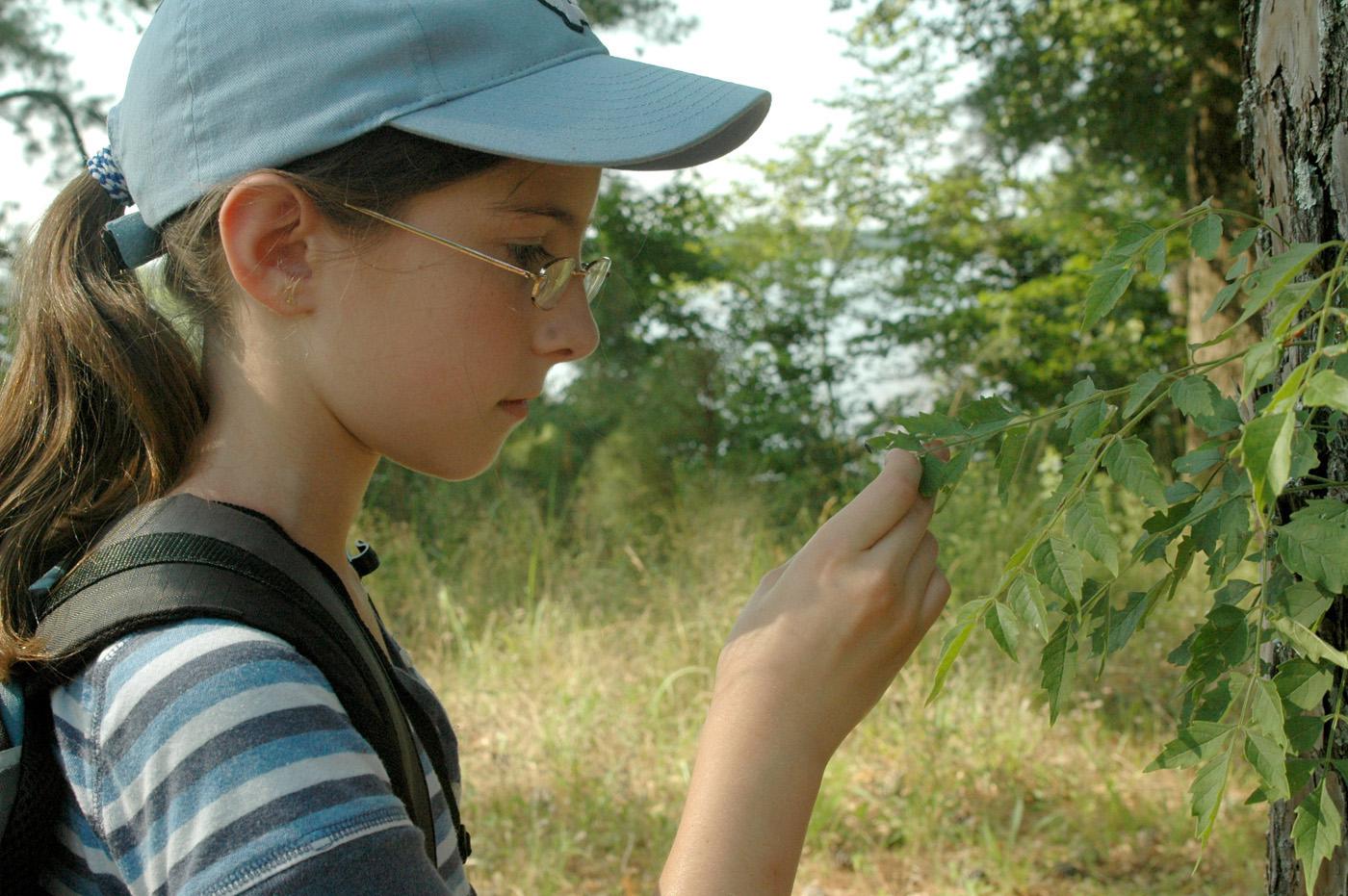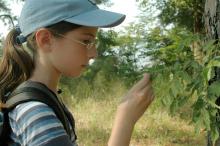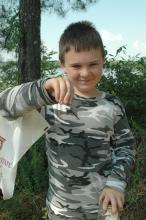Information Possibly Outdated
The information presented on this page was originally released on June 17, 2010. It may not be outdated, but please search our site for more current information. If you plan to quote or reference this information in a publication, please check with the Extension specialist or author before proceeding.
Leaf collecting raises bug campers' interest
By Patti Drapala
MSU Ag Communications
MISSISSIPPI STATE – Participants at Mississippi State University’s Intergenerational Summer Camp on insect and plant ecology may attend because of the bugs, but they soon discover that looking for plants is equally interesting.
Among the camp’s goals are the exploration of the interactions between plants and insects. These relationships, whether positive or negative, can reveal how nature stays in balance said camp director John Guyton of the MSU Department of Wildlife, Fisheries and Aquaculture.
“Plants provide insects with food, shelter and breeding places. Insects pollinate plants, kill off competitors and serve as food for carnivorous species,” he said.
To understand insect-plant interactions, campers have classroom discussions with horticulturists and entomologists, and then spend time collecting, identifying and pressing leaf specimens. They learn the identifying characteristics of plants, such as leaf shapes, leaf arrangement on stems and the types of leaf veins.
Campers also receive information on how to avoid collecting leaves from dangerous, irritating or poisonous plants such as poison ivy.
The significance of relationships between insects and plants motivated camp organizers to add plant ecology as a topic. Years ago, former camp director Mike Williams, an Extension entomologist, felt campers needed to recognize poisonous plants while hunting in the woods for insects. He asked Extension horticulturist Lelia Kelly to help campers identify and avoid these plants.
“Lelia said, ‘Well, there are plenty of edible plants in the woods, too. Why not include them?’ and her remark spurred interest in expanding the scope of what was primarily an insect camp,” Williams said.
Guyton asked Kelly to organize the plant ecology segment of camp. She added a plant identification exercise by asking campers to collect leaves and use them to classify plants.
“Children soon realized that interrelationships between entomology and ecology were an interesting and fun experience at camp,” Guyton said.
Kelly thought it also would be fun for campers to identify edible plants by using them to make salad for an evening meal. The salad has become wildly popular with campers, she said.
“The plant world is as fascinating as the bug world,” Kelly said. “For the salad, the campers had the choice of mixing traditional garden plants, such as chives, iceberg lettuce and sweet basil, with wild edibles, such as daylily petals, peppergrass seeds and violet leaves.”
Collecting leaves, eating edible plants, chasing insects and hiking through the Noxubee National Wildlife Refuge has allowed campers to immerse themselves in the natural world. Their enthusiasm is self evident to any observer.
“Today I collected a lot of plant specimens, and I have to say my favorites are the compound leaves,” said fifth grader Savannah Munn, 10, of Starkville. “I hope that I will have as much success with pressing the leaves so I can keep them as part of my nature collection.”
Her enthusiasm is shared by other campers, many who come to Mississippi from as far away as California, Texas and Pennsylvania.
Corran Hall, 9, who is a fourth grader from Des Moines, Iowa, came to camp after making a deal with his parents. His mother, Teresa Hall, told him she would take him to a summer insect camp as long as he promised not to take bugs into his school. Teresa discovered MSU’s camp by doing a Google search online.
This was ok with Corran, who singlehandedly caught a dragonfly while collecting leaves.
“Collecting leaves is fun, but I can’t wait to catch some night insects with black light,” he said. “That is just so cool.”
While insects continue to be the camp’s main lure, plants are catching up.
“Our academic professionals enjoy working with youth and campers of all ages,” Guyton said. “They take complex science concepts and make them understandable. Our campers know that when they leave, they can pick up the phone and get their questions answered by one of these professionals.”
The camp is sponsored by the MSU Department of Entomology and Plant Pathology and the MSU Department of Wildlife, Fisheries and Aquaculture. Several state agencies, such as the Mississippi Department of Environmental Quality, the Mississippi Department of Wildlife, Fisheries and Parks, and the Mississippi Department of Health, also provide support.




